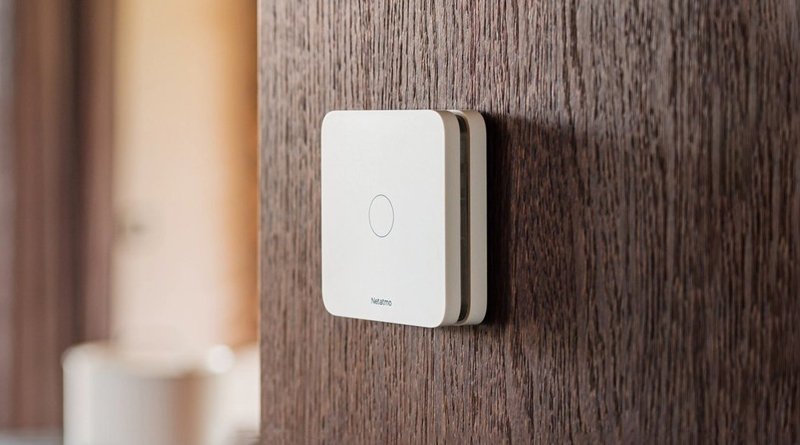Netatmo debuts new HomeKit-compatible smart CO detector
Smart home accessory maker Netatmo has announced a new carbon monoxide alarm that's compatible with Apple's HomeKit platform.

Credit: Netatmo
The Netatmo Smart Carbon Monoxide Alarm can monitor carbon monoxide levels in various rooms through a home and alert users when it detects the odorless gas. As with normal carbon monoxide alarms, it's equipped with an alarm, but it will also notify users via smartphone. That should give additional peace of mind if a user isn't at home.
It features a simple and minimal white design with a single button on the front, as well as a grille surrounding the exterior of the device to intake air. Its alarm is capable of produce a siren tone up to 85 decibels.
According to the French device maker, the Smart Carbon Monoxide Alarm sports a battery that will last up to 10 years. When it's nearing the end of its lifespan, it'll send the user a notification to remind them to replace the device. Lacking a replaceable battery is standard for smoke and carbon monoxide detectors.
Although equipped with Wi-Fi, the Smart Carbon Monoxide alarm works without any electrical connection. It can simply be screwed to a wall anywhere in a home and paired with the Netatmo app and HomeKit.
The Netatmo Smart Carbon Monoxide Alarm is available to pre-order for GBP 89.99 starting Wednesday, and should begin shipping out to customers on Nov. 16. It's currently available only in the U.K. and Europe, with no word on a U.S. release yet.
Read on AppleInsider

Credit: Netatmo
The Netatmo Smart Carbon Monoxide Alarm can monitor carbon monoxide levels in various rooms through a home and alert users when it detects the odorless gas. As with normal carbon monoxide alarms, it's equipped with an alarm, but it will also notify users via smartphone. That should give additional peace of mind if a user isn't at home.
It features a simple and minimal white design with a single button on the front, as well as a grille surrounding the exterior of the device to intake air. Its alarm is capable of produce a siren tone up to 85 decibels.
According to the French device maker, the Smart Carbon Monoxide Alarm sports a battery that will last up to 10 years. When it's nearing the end of its lifespan, it'll send the user a notification to remind them to replace the device. Lacking a replaceable battery is standard for smoke and carbon monoxide detectors.
Although equipped with Wi-Fi, the Smart Carbon Monoxide alarm works without any electrical connection. It can simply be screwed to a wall anywhere in a home and paired with the Netatmo app and HomeKit.
The Netatmo Smart Carbon Monoxide Alarm is available to pre-order for GBP 89.99 starting Wednesday, and should begin shipping out to customers on Nov. 16. It's currently available only in the U.K. and Europe, with no word on a U.S. release yet.
Read on AppleInsider

Comments
Also, I'd spend extra to not have it be a google device.
The Protects send very little data, enough so that I know no sound is recorded. It's about 50kB per day. And really, what can Google do with occupancy data? I'd never get anything like the cameras, though.
I don’t recall the exact details, but I believe it comes down to real world events that showed that such fire safety devices have been to blame for fire deaths as they have either not had their batteries replaced and/or their sensor become ineffective after 10 years. So to force fire safety improvements the batteries limit the life of the device naturally at the point it should be replaced anyway.
Not great for electrical waste (and kind of hypocritical of the EU that originally brought in the regulations) considering it’s views in other areas on the same subject.
The major downside (for me) is that it is almost impossible to find a smart smoke detector that is legally compliant for a 3-storey town house as the smoke detectors are legally required to be mains powered as the primary source with a battery backup and I’ve yet to find a single smart alarm that meets this requirement that is HomeKit compatible.
Many States are moving towards 10 year sealed batteries for non hard-wired detectors and the rules also vary by whether they are replaced, or whether they can be bought in a retail store, by an owner, or as part of a home renovation where permits are required. Even Amazon restricts many purchases in many States.